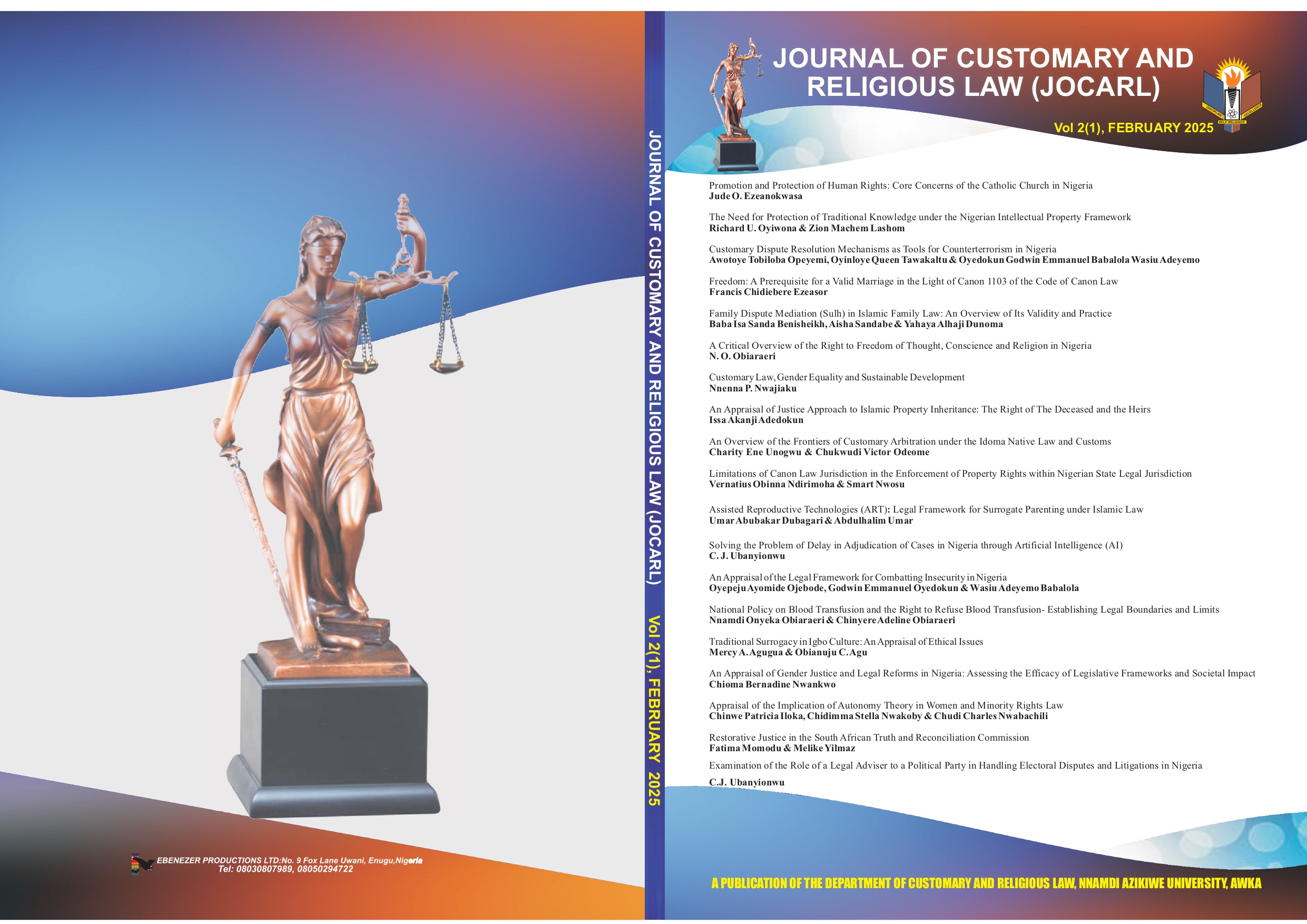Customary Law, Gender Equality and Sustainable Development
Keywords:
Customary Law, Development, Sustainable Development Goals, Gender EqualityAbstract
Gender equality, as a constitutional and customary law issue, is a recurring subject in academic debate. The relationship between law and development is also gaining recognition. However, insufficient attention has been given to the place of customary law in the latter discourse despite its role in the former. This paper established a nexus between customary law and development, particularly the sustainable development goal of gender equality and related goals adopted by the United Nations. The study utilised the doctrinal method of research by examining customary law to expose the practices which hinder development. It was found that customs which exclude women from land ownership or subject them to early marriage and other unfair treatment contribute to poverty, inequalities and inability to access basic needs which are indicators
of development. The study showed that in spite of judicial pronouncements on the equal rights of women to property, as well as constitutional and legislative prohibitions on gender discrimination, many prejudicial customary practices persist in Nigeria, with far-reaching implications on the achievement of the United Nations Sustainable Development Goals. The paper proposed, amongst other recommendations, conscious reforms and the codification of customary law to meet society’s developmental needs.

